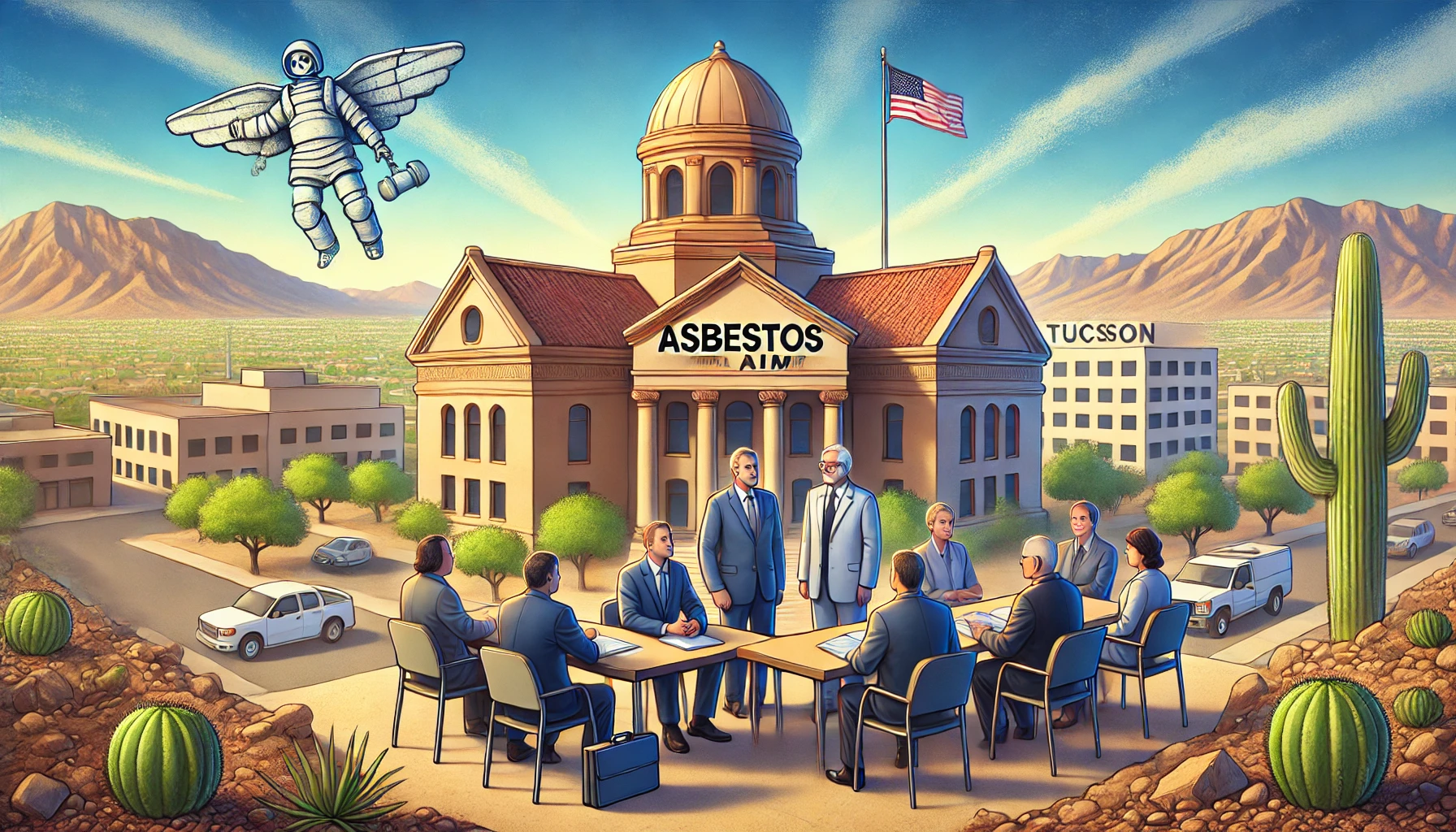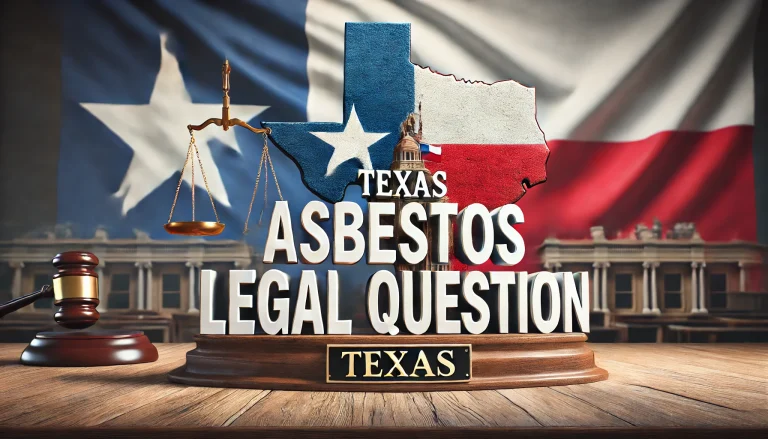Asbestos, a naturally occurring mineral, was once a staple in construction, manufacturing, and industrial products due to its heat resistance and durability. However, medical research has revealed its significant health risks. Prolonged exposure to asbestos fibers can cause severe illnesses, including mesothelioma, lung cancer, and asbestosis. These dangers have prompted legal actions, raising the crucial Texas asbestos legal question of how victims can seek justice and compensation. For Texans exposed to asbestos, understanding the laws and legal options is essential.
Asbestos Exposure in Texas: Where It Happens
Texas has a history of industrial growth, which has unfortunately increased the risk of asbestos exposure. Here’s where exposure is most common:
- Industrial Workplaces: Oil refineries, chemical plants, shipyards, and manufacturing facilities often use asbestos in insulation, machinery, and equipment.
- Older Buildings: Homes, schools, and public structures built before the 1980s may still contain asbestos in insulation, floor tiles, and roofing materials.
- Military Installations: Veterans who worked in shipyards or on military bases may have been exposed to asbestos in ships and vehicles.
- Secondhand Exposure: Family members of workers could be exposed through asbestos fibers carried home on clothing or tools.
Workers in construction, manufacturing, and the military are most at risk, but anyone who has been near asbestos-containing materials may be affected.
Health Risks of Asbestos Exposure
Asbestos fibers are microscopic and can remain airborne for extended periods, making them easy to inhale. Once inhaled, they can lodge in the lungs or abdominal lining, causing life-threatening illnesses, including:
- Mesothelioma: A rare but aggressive cancer that develops in the lining of the lungs or abdomen.
- Lung Cancer: Long-term asbestos exposure is a leading cause of lung cancer in non-smokers.
- Asbestosis: A chronic lung condition caused by scar tissue from inhaled fibers.
Symptoms, including persistent coughing, chest pain, and difficulty breathing, often appear years after exposure. This delayed onset makes early diagnosis and legal action critical.
Texas Asbestos Laws: Protecting Victims
Texas has established legal frameworks to support asbestos victims. Here are the key components:
- Medical Evidence Requirement: Under Chapter 90 of the Texas Civil Practice and Remedies Code, claimants must provide a detailed medical report linking their illness to asbestos exposure. This ensures only legitimate claims proceed.
Statute of Limitations:
- Victims have 2 years from the date of diagnosis to file a lawsuit.
- Families filing wrongful death claims also have 2 years from the date of death.
Asbestos Trust Funds: Many companies responsible for asbestos exposure have filed for bankruptcy. These companies have set up trust funds to compensate victims.
Failure to file a claim within the legal timeframe can result in losing the right to compensation, making timely legal action crucial.
Legal Options for Texas Asbestos Victims
Asbestos victims in Texas have several legal avenues for seeking justice:
- Personal Injury Lawsuits:
Filed by individuals diagnosed with asbestos-related illnesses. These lawsuits aim to recover costs for medical treatments, lost wages, and emotional suffering. - Wrongful Death Lawsuits:
Families of victims who have died due to asbestos-related conditions can file wrongful death claims. Compensation can cover funeral expenses, loss of income, and emotional damages. - Trust Fund Claims:
Victims can file claims against asbestos trust funds set up by companies that are now bankrupt. These funds offer an alternative to traditional lawsuits.
Steps to File an Asbestos Lawsuit in Texas
If you or a loved one has been affected by asbestos exposure, here are the steps to pursue legal action:
- Obtain a Medical Diagnosis: Ensure your diagnosis is supported by a qualified medical professional who can link your illness to asbestos exposure.
- Hire an Experienced Attorney: Asbestos cases are complex; working with a lawyer who specializes in asbestos litigation can improve your chances of success.
- Gather Evidence: Collect work history, product information, and medical records that prove exposure and the resulting illness.
- File Your Claim: Submit your lawsuit or trust fund claim before the statute of limitations expires.
- Navigate the Legal Process: Your attorney will guide you through negotiations, settlements, or court proceedings.
Role of Asbestos Attorneys
Specialized attorneys play a vital role in asbestos cases. Here’s how they help:
- Understanding Complex Laws:
They navigate Texas-specific asbestos laws and procedures. - Evidence Gathering:
Attorneys help compile work records, identify asbestos-containing products, and build a strong case. - Maximizing Compensation:
They negotiate settlements or represent you in court to secure fair compensation for medical bills, lost income, and emotional suffering.
Compensation Available for Victims
Victims of asbestos exposure can receive compensation for:
- Medical Expenses:
Covering treatments, surgeries, and medications related to asbestos-related illnesses. - Lost Wages and Future Earnings:
Reimbursement for income lost due to illness and reduced earning potential. - Pain and Suffering:
Compensation for physical pain, emotional distress, and reduced quality of life. - Funeral Costs:
For families filing wrongful death claims, funeral and burial expenses are recoverable.
Compensation amounts depend on factors such as the severity of the illness, the duration of exposure, and the liability of the responsible parties.
Challenges in Asbestos Cases
Asbestos lawsuits can be complex and challenging due to:
- Proving Exposure:
Identifying the source of exposure and linking it to a specific product or workplace can be difficult. - Multiple Defendants:
Many responsible companies are now bankrupt, requiring claims through trust funds. - Lengthy Process:
The legal process can take months or even years to resolve, requiring patience and determination.
Preventing Future Asbestos Exposure
While asbestos is no longer widely used, exposure risks still exist. Here’s how to stay safe:
- Follow Regulations:
Abide by OSHA and EPA guidelines for handling asbestos safely. - Asbestos Abatement:
Hire licensed professionals for the removal or containment of asbestos materials in older buildings. - Awareness and Advocacy:
Educate workers and residents about the risks of asbestos exposure and promote the use of safer alternatives.
Conclusion
Asbestos exposure remains a serious health risk, and understanding the Texas asbestos legal question is vital for those affected. Texas law offers various pathways for victims to seek justice and compensation, including personal injury lawsuits, wrongful death claims, and trust fund claims.
These legal avenues ensure that victims can hold responsible parties accountable for the harm caused. If you or a loved one has been impacted by asbestos exposure, act quickly to protect your rights. With the guidance of an experienced asbestos attorney, you can navigate the legal complexities and secure the compensation you deserve, providing both justice and financial relief for you and your family.
FAQs on Texas Asbestos Legal Questions
What is asbestos, and why is it dangerous?
Asbestos is a mineral once widely used in construction and manufacturing for its heat resistance and strength. However, inhaling asbestos fibers can cause severe illnesses like mesothelioma, lung cancer, and asbestosis. These diseases often develop decades after exposure.
Who can file an asbestos lawsuit in Texas?
Anyone diagnosed with an asbestos-related illness, or the family members of someone who has died due to asbestos exposure, can file a lawsuit. Victims typically include industrial workers, construction workers, veterans, and even family members exposed secondhand.
How long do I have to file an asbestos lawsuit in Texas?
Texas law allows victims 2 years from the date of diagnosis or the date of death (for wrongful death cases) to file a lawsuit. Acting promptly is crucial to ensure your claim is not barred by the statute of limitations.
What compensation can I receive for an asbestos-related claim?
Compensation may cover medical expenses, lost wages, pain and suffering, and funeral costs. The amount depends on the severity of the illness, the duration of exposure, and the responsible parties’ liability.
Do I need a lawyer to file an asbestos lawsuit?
Yes, hiring an experienced asbestos attorney is highly recommended. Asbestos cases are complex, involving medical evidence, legal deadlines, and sometimes multiple defendants. A lawyer will help navigate the process, gather evidence, and maximize your compensation.





